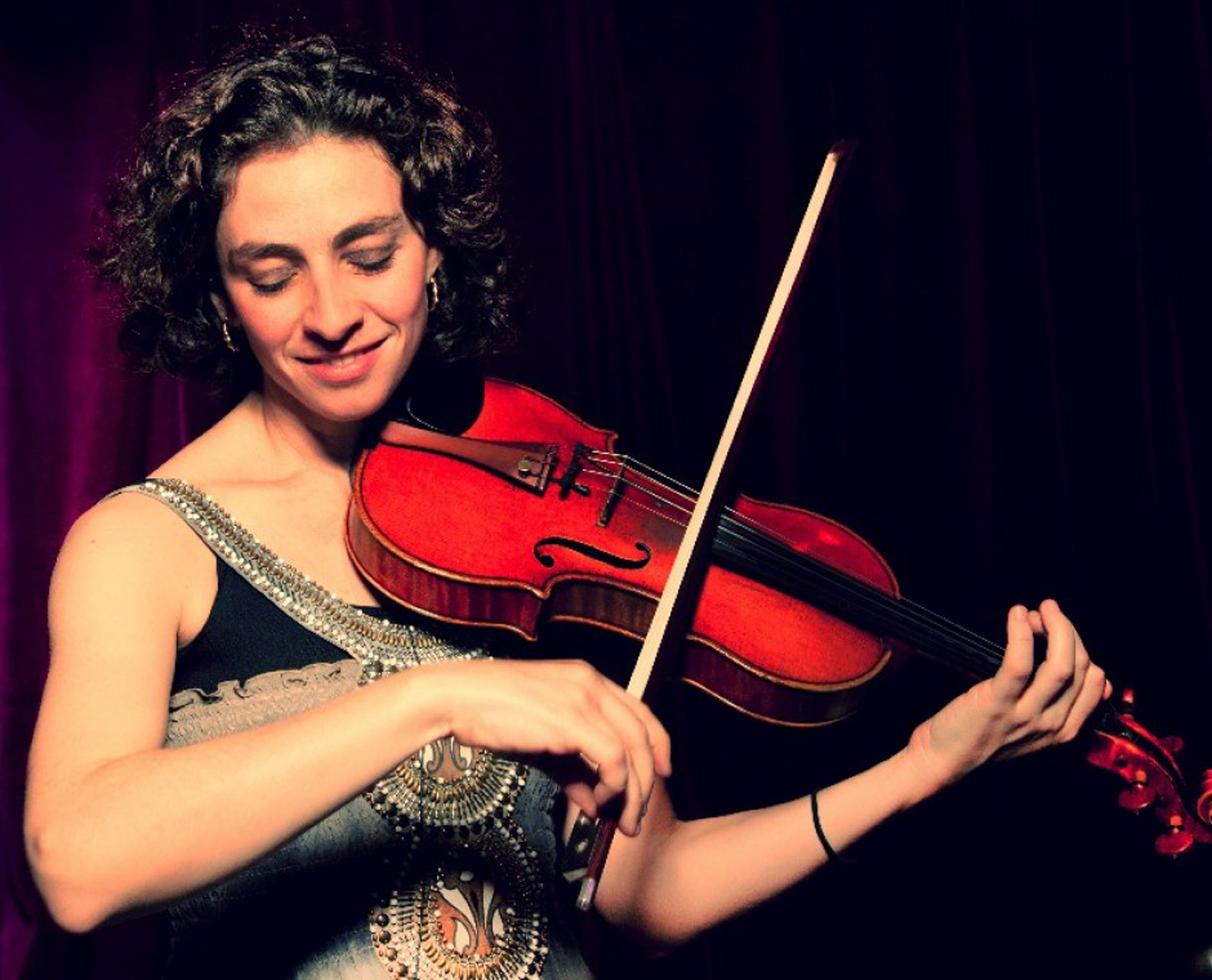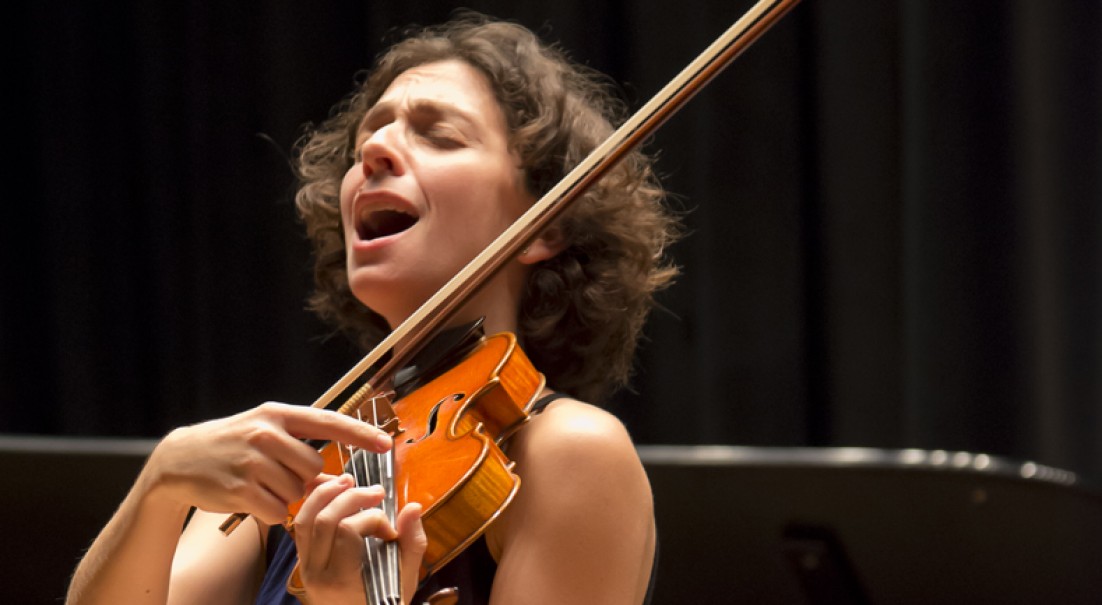On July 5, 2015 I was invited to speak at Church of the Covenant in Boston, as a precursor to a Benefit Community Sing/Play In and Concert for Students in Afghanistan on July 17th. These are the notes from my talk.
In October of 2010, during my second year of study at New England Conservatory, I got an email from a friend, Robin Ryczek who was living in Kabul, Afghanistan. Robin had taken a year off from her MM at NEC to teach at the Afghanistan National Institute of Music, and one of her first tasks there was to organize a Winter Music Festival. I, along with several other Boston-based musicians, was invited to attend. It was almost November when we got our official invitations, and I was concerned about the rush needed to get visas and plane tickets in time for a December festival. But when I suggested to Robin that we might wait ‘til the following year, she said, “We have no idea what next year will bring…come now.” So I did.
Booking flights was surprisingly easy through the typical internet travel websites, like Kayak and Travelocity. The most common route to Kabul is through Dubai, so we flew there first, then hopped on an Afghan airline to make the final 3 1/2 hour flight. I was one of very few women on the plane – most of the other passengers were male American contractors. When we landed, I nervously wrapped a scarf around my head, suddenly wondering what had possessed me to make the trip. The landscape outside was dry and empty, and it was quite cold. I followed the others to Customs. There, the Afghan official looked at my passport and sternly questioned, “Is this your first visit to Afghanistan?” “Yes,” I replied. His face burst into a radiant smile, “Welcome!” he said, “Afghanistan is a beautiful country. I hope that you will have a wonderful time here!” And I knew from that moment on that I would be just fine.
Now, some of you may be wondering what a music school is doing in Afghanistan in the first place, given the level of political instability there combined with years of rule by conservative regimes, such as the Taliban. In fact, music was banned in Afghanistan from 1992 – 2004. During that time, many artists fled the country. Those who stayed took on other work officially and only sang or played in secret. The Taliban destroyed instruments and hung them in public squares, and fined, jailed, or punished anyone caught listening to or playing music. In addition, it was nearly impossible for anyone to attend school and girls were forbidden from studying altogether. It was a very dark time for the culture of the country. Since then, Afghans have been struggling to reclaim their culture and ensure its preservation through education and general support for the arts.
Music and Islam
The reason for music being such a volatile issue in Afghanistan and other Islamic countries lies in different interpretations of the Quran and of hadith, which are stories about the life of the Prophet Mohammad. There is no explicit criticism of music in these sources, but various Quranic verses and hadiths have been interpreted by theologians as either sanctioning or forbidding music, with radically conservative Islamists disapproving of music altogether.
That being said, history proves that, regardless of religious strictures, music has generally grown and flourished in Islamic regions, especially during times of peace. During the Abbasid dynasty (750-847 AD), professional musicians and singing-girls were treated extremely favorably, being paid “a gold-mine” for their services. In the late 19th century, North Indian musicians were brought to Kabul where they were housed in an area called Kharabat, from where they were transported to court on elephants each day. In the 20th century, Kharabat was known as the “cradle of Afghan music,” and until the Civil War began in 1989, the area was literally teeming with musicians, each window ringing with the sounds of lessons or bands vying for the attention of potential clients.
In the 1980s, Kabul enjoyed flourishing traditional music scenes as well as radio orchestras, pop music, and a vibrant nightlife, with dancing at the Intercontinental Hotel on the weekends. Even during the Taliban years, when playing or listening to music was officially prohibited, secret gatherings would take place, with lookouts posted to watch for danger. When the Talibs were pushed out of Kabul in 2001, the folks running Radio Afghanistan (which had been used as a propaganda station by the Taliban during their occupation) immediately put big speakers out on the street and began broadcasting music. This became the sign throughout the country from town to town that the Talibs had been ousted.
The Afghanistan National Institute of Music (ANIM)
The ban on music was officially lifted by the Afghan government in 2004, and immediately after, Dr. Ahmad Sarmast, an Afghan musician and refugee living in Australia, began planning the reopening of a music school in Kabul on the site of a school where his father taught before the war. The Afghanistan National Institute of Music opened its doors in the spring of 2010, with funding from various international aid sources as well as support from the Afghan Ministry of Education. The ANIM provides an education for boys and girls ages 9 – 21, with co-ed courses including Afghan and Western music performance, history and theory as well as math, science, languages, and Islamic Studies.
Over fifty percent of ANIM students come from what we often term “disadvantaged” backgrounds. Many of them live in orphanages in Kabul, run by the Afghan Child Education and Care Organization, AFCECO. Although a lot of these children lost their parents in the war, some come from families that are simply too poor, or too isolated, to provide them with an education at home. At AFCECO, these children attend various local schools during the day and participate in afterschool activities run by AFCECO, including team sports, visual art, dance, and music classes. Many of ANIM’s older students teach young AFCECO students at the orphanage. In this way, the organizations benefit children on both ends, providing them with support and education as well as an opportunity to teach and mentor others.
Possibilities
I think often of what my life might have been like, had I been born in Kabul in 1979 during the Soviet occupation of Afghanistan. During my first ten years, I may have led a fairly secure life, enjoying access to education and a fairly stable city. But in 1989, when the Soviets were pushed out and local militias began vying for control, I would have been living in a city under siege. In 1992, when Gulbadin Hekmatyar took control of Kabul, I, my sisters and my mother would have been forbidden from working, attending school, or even leaving the house without a male relative as an escort. My father would likely have been conscripted into an army or militia, so we would have been reliant on my baby brother as the sole male escort in our family. In 1994, when the Taliban came into power, we would likely have faced starvation or been driven to prostitution as a means of survival, like so many Afghan women were.
Or, my family may have fled the country, as so many did. As of July 2014, over two million Afghans were living in refugee camps in Iran and Pakistan, and this number is steadily growing. (Another two million Afghans are displaced within the country.) The camps are rife with disease and poverty, and schools are almost unheard of. For many families, religious schools run by conservative Islamists are the only opportunity for education. These schools also provide housing for orphans who often have nowhere else to turn. We know that both the Taliban and ISIS have their roots in these camps and in the religious schools run there – for children and families suffering from a lack of resources in food and education, there is often nowhere else to turn. In such a situation, what are parents supposed to do? What are orphans supposed to do? I think of what that must mean for so many Afghan families, and I understand how important any semblance of community or security must be.
One Solution
In 2010, a young Afghan woman named Andeisha Farid realized that the path to a peaceful and prosperous Afghanistan was contingent upon today’s children. She created AFCECO, safe housing for children and war widows, to ensure that they have other places to turn to for support than the schools and orphanages run by religious extremists. Today, AFCECO has homes in many major cities in Afghanistan and in refugee camps in Pakistan, making sure that hundreds of young Afghans are growing up in a safe and nurturing environment.
As individuals, we often feel hopeless when thinking about the incredible amount of violence and corruption in countries like Afghanistan. It is easy to feel powerless, incapable of shifting things in a positive direction. I believe fervently in education, and that by that enabling young Afghans to grow up in a safe and loving environment with access to education and support for creativity, we are sowing the seeds for a safe and prosperous country. I see this for myself every single day when I am in Afghanistan, watching my students work together, laugh together, debate, and problem solve across ethnic and socio-economic divisions that have torn the country apart for well over thirty years. I see the mutual respect that develops amongst them, and the way they begin to think about the problems of their country, and the solutions, without turning to violence. I see them support and care for one another. I see them embracing their faith through a practice of Islam that embraces people of all faiths, a growing movement in the major cities of Afghanistan. I watch older students pass their passion, spirituality, and peaceful vision for the future on to younger Afghans. And I know that this is the path to the future. This is the result of education, and of safety.
This Fourth of July weekend, I have been thinking about the ways we fight for justice. As we watch the news, as we attend rallies and march in protests, we are taught to think of incidents of violence as categorical: terrorism attack; racially-based; politically-charged. We often assign ourselves roles: “I’m not Afghan, I’m not Black, I’m not Latina, I’m not Gay, but I will stand up in support of my friends.” The truth is that violence anywhere impacts us all – in working for change, we are standing up for ourselves just as much as we are for anyone else. In my mind, there is no way to separate the violence in Afghanistan from the violence in our own country, the ethnic prejudices there from the racial divides that we continue to fight every day in America. We are all connected.
On July 17th, Andeisha Farid, founder and director of AFCECO, will be here herself, at Church of the Covenant to speak about her work. There will be an evening of musical celebration and collaboration, which you are invited to participate in. You are also very welcome to simply come to listen, and check out the collection of arts and crafts made by students in Afghanistan. Please take flyers to your local communities, and invite everyone you know to attend. As far as I’m concerned, this is not just another event – this is a possibility to make an incredible impact on the lives of children right now, who very badly need our help and support. This is a chance to make change happen now.
For more information about the Community Sing/Play-In and Concert on July 17, please visit www.cuatropuntos.org


